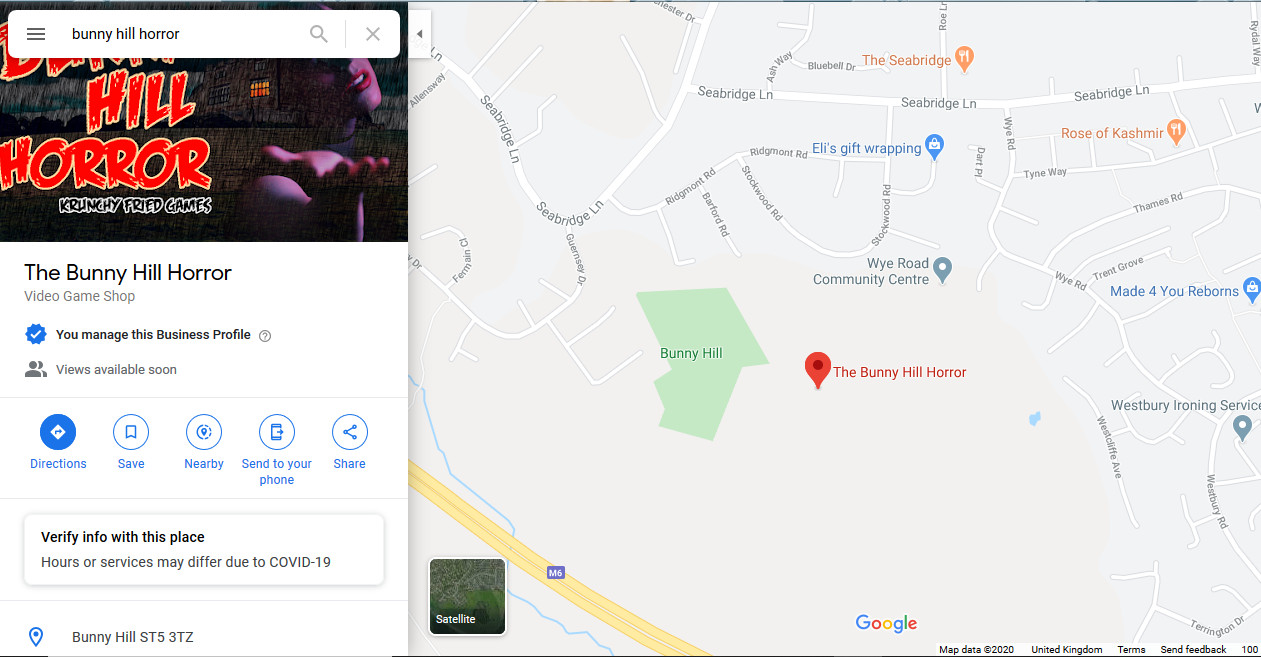So, marketing is often seen as the worst part of game dev. There are many, many tips online- and I'm always impressed at how friendly and helpful devs are to each other with this.
There is one problem though: since we're all after attention from the same indie gamers, more marketing often just sets the bar higher- which means more pointless work for everyone to fight for the same audience. So my question is: have you done anything to promote your game to people outside the usual audience?
One creative (and maybe even legal) thing we did, was to get our game, The Bunny Hill Horror, on Google Maps- since it's set in a real life location. This was quite succesful, and it became one of the most visible locations in North Staffordshire for about 6 months until they realised that there was, in fact, no invisible castle on Bunny Hill, and took it down.

Also, we make choose-your-own-adventures and the overlap between people who play games and read novels is smaller than it should be. One thing we did was to have bookmarks printed- which have been very useful as business cards and to strategically leave around libraries. Below is the overly complex one I designed for Witches and Bandits and Swords (Oh My).

So, if you're a dev, please share anything you've done, or plan to. If you're not- what do you think would be a good idea to get people to itchio who wouldn't usually visit? Often marketing techniques might work well for a specific genre or game.

